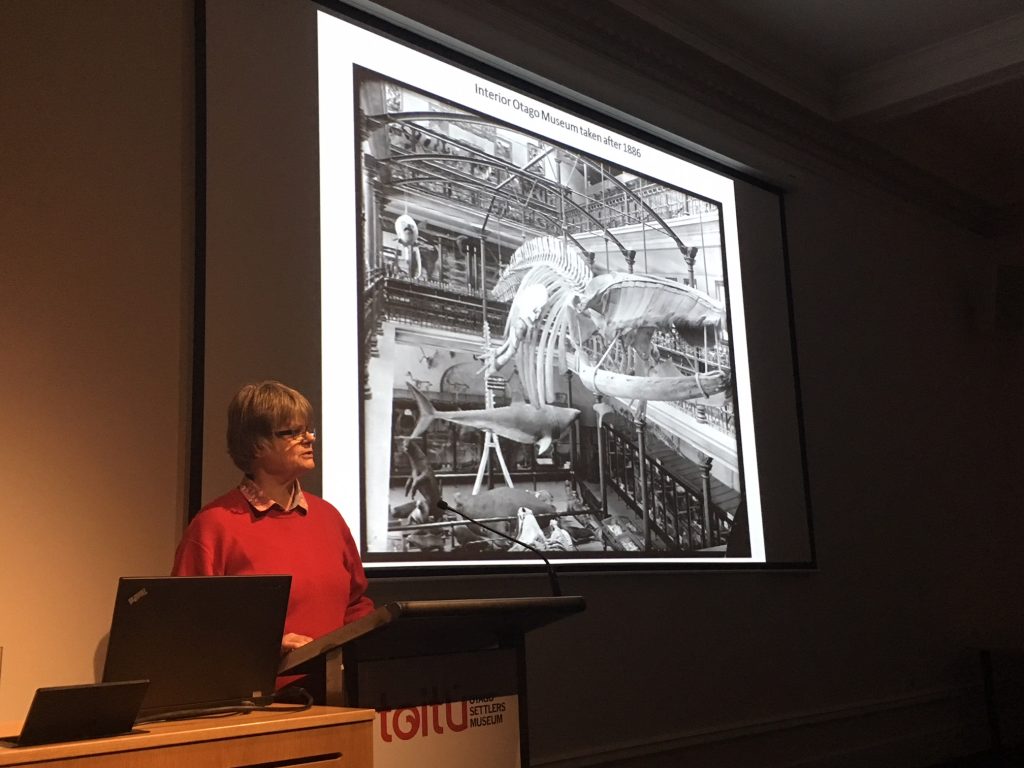NZ History Research Trust Awards
The New Zealand History Research Trust recently announced winners of its annual awards. One of the successful applicants is Centre member Dr. Rosi Crane, who has been awarded funding to write a history of Otago Museum, which was founded in 1868. You can listen to her talking about the project with Lynn Freeman on Radio New Zealand’s Standing Room Only.
Warmest congratulations Rosi!
Globalising Otago Museum
The latest instalment of the Global Dunedin Lecture Series was given by Dr. Rosi Crane (Honorary Curator, Otago Museum) on Sunday July 8th. Her subject was the global trade in animal skeletons, exotic birds, and pelts that underpinned the establishment of Otago Museum’s early collections. This was a truly global trade in which the museum’s earliest curators were enthusiastic participants. In exchange for moa bones and whale skeletons, Otago Museum received exotic overseas specimens. An early example was a giraffe skeleton from a Paris museum acquired in 1874. A key currency, highly desired by international museums, moa bones were sent to Liverpool, Sydney, Aberystwyth, and many other locations. Specimens were also obtained opportunistically, but also through a network of commercial dealers located across the globe. Many thanks to Rosi for sharing her research with a large crowd who were left enthralled and astounded by the global reach of Otago Museum’s collection.
Seminar: Skeletons in the Attic: The Prehistory of Otago Museum
Our next CRoCC seminar will be presented by Dr. Rosi Crane, who will speak about the prehistory of Otago Museum’s zoological collections.
These collections were acquired before the First World War but have precious little documentation associated with them. Serendipitous finds in scattered archives are beginning to paint a detailed picture of what the public saw when the museum opened in its new building on Great King Street in 1877. However, the principal sources are the specimens themselves, their labels, and a handful of photographs. This presentation will consider how we can use these sources to make sense of the scientific approaches to curating in nineteenth century Dunedin.
Please join us at 3.30 on Friday 27 October in the Hocken Seminar Room (90 Anzac Avenue) to hear what promises to be a great talk.


